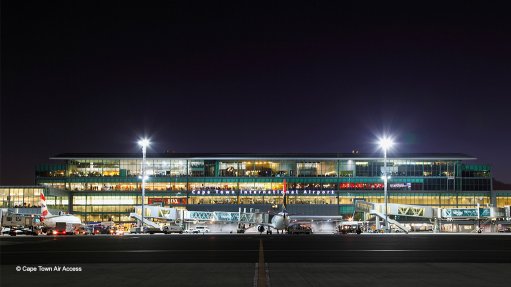Déjà vu all over again
In her book, The Lies about Truth, Courtney C Stevens states: “If nothing changes, nothing changes. If you keep doing what you are doing, you are going to keep getting what you are getting. You want change, make some.” Yet here we are, faced with another International Monetary Fund (IMF) Article IV Report.
If you missed it while preparing for the Christmas festivities, it was released on December 8.
An IMF Article IV consultation is supposedly one of the fund’s “most important instruments for the monitoring and surveillance of the behaviour of key economic variables in member countries”.
The IMF should be commended for diligently presenting a report each year. It takes a special talent and creativity to provide bad news in a different way – year after year.
According to the blog www.speakconfidentenglish.com, ‘7 Steps to Give Bad News in English with Kindness’, these steps are: be prepared; be direct and assertive; give time; give background facts; be caring; be supportive; and don’t take it personally. The IMF’s consultations with the public and private sectors took place from November 17, 2021, to December 7, 2021, with “discussions focused on policy measures and reforms needed to transform the current South African cyclical rebound into a lasting, job-creating, inclusive and green recovery.”
As I read the IMF report, I was reminded of the 1988 song by Munchener Freiheit, Keeping the Dream Alive, from the aptly titled album, Fantasy: “The hopes we had were much too high; Way out of reach, but we have to try; The game will never be over; Because we’re keeping the dream alive . . . Mmh-mmh-mmh-mmh-mmh- mmh.”
It all starts off very subduedly: “The Covid-19 pandemic hit South Africa at a time when its economic vulnerabilities had already been aggravated by a prolonged period of depressed investment, subdued growth, and high and rising public debt . . . Social conditions, already strained by stubbornly high poverty, unemployment and inequality, worsened further – the education system suffered, and job losses disproportionately affected the youth, women and the poor. A significant loss of jobs has been recorded, taking the unemployment rate to record-high levels.”
Well, this is hardly news; it’s par for the course, you might add. If it were not for the reference to Covid-19, it could have been the intro for the reports produced for each of the past few years.
Now for something completely different – well, not quite. The ‘immediate actions’ needed to reduce growth impediments are: raise the efficiency of the economy, particularly in the network industries of electricity, telecommunications and transport; reduce the existing regulatory barriers to private investment; increase labour market flexibility to boost job opportunities and facilitate workforce management; intensify actions to address weak governance and corruption at Eskom, Transnet and other State-owned enterprises.
Does the IMF realise it can plagiarise itself? For one, the writing should be original.
The IMF then turns its attention to “putting debt on a sustainable path”, without suggesting how to stem or reverse the “persistent Budget deficits [that] have saddled government with a high debt burden and ballooning financing costs, while leaving no fiscal space to facilitate significant human capital and infrastructure investment”. As Albert Einstein reminds us, “the thinking that got us to where we are is not the thinking that will get us to where we want to be”. Which begs the question: Where exactly does South Africa want to be?
As for the last paragraph of the Article IV report, titled ‘Building a Green and Climate-Resilient Economy”, the less said about it, the better. It is unconscionable for a country to have the ambition of achieving “carbon neutrality by mid-century”, while it “suffers among the highest levels of inequality in the world”. This is the modern-day Marie-Antoinette equivalent of “let them eat cake”.
Article Enquiry
Email Article
Save Article
Feedback
To advertise email advertising@creamermedia.co.za or click here
Announcements
What's On
Subscribe to improve your user experience...
Option 1 (equivalent of R125 a month):
Receive a weekly copy of Creamer Media's Engineering News & Mining Weekly magazine
(print copy for those in South Africa and e-magazine for those outside of South Africa)
Receive daily email newsletters
Access to full search results
Access archive of magazine back copies
Access to Projects in Progress
Access to ONE Research Report of your choice in PDF format
Option 2 (equivalent of R375 a month):
All benefits from Option 1
PLUS
Access to Creamer Media's Research Channel Africa for ALL Research Reports, in PDF format, on various industrial and mining sectors
including Electricity; Water; Energy Transition; Hydrogen; Roads, Rail and Ports; Coal; Gold; Platinum; Battery Metals; etc.
Already a subscriber?
Forgotten your password?
Receive weekly copy of Creamer Media's Engineering News & Mining Weekly magazine (print copy for those in South Africa and e-magazine for those outside of South Africa)
➕
Recieve daily email newsletters
➕
Access to full search results
➕
Access archive of magazine back copies
➕
Access to Projects in Progress
➕
Access to ONE Research Report of your choice in PDF format
RESEARCH CHANNEL AFRICA
R4500 (equivalent of R375 a month)
SUBSCRIBEAll benefits from Option 1
➕
Access to Creamer Media's Research Channel Africa for ALL Research Reports on various industrial and mining sectors, in PDF format, including on:
Electricity
➕
Water
➕
Energy Transition
➕
Hydrogen
➕
Roads, Rail and Ports
➕
Coal
➕
Gold
➕
Platinum
➕
Battery Metals
➕
etc.
Receive all benefits from Option 1 or Option 2 delivered to numerous people at your company
➕
Multiple User names and Passwords for simultaneous log-ins
➕
Intranet integration access to all in your organisation
















